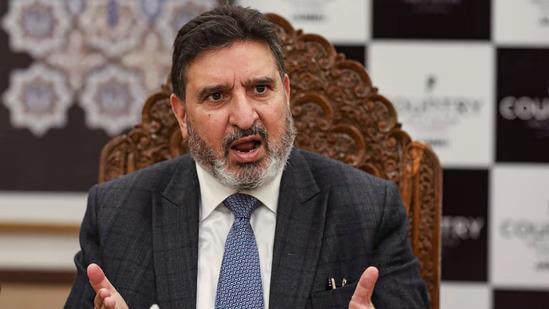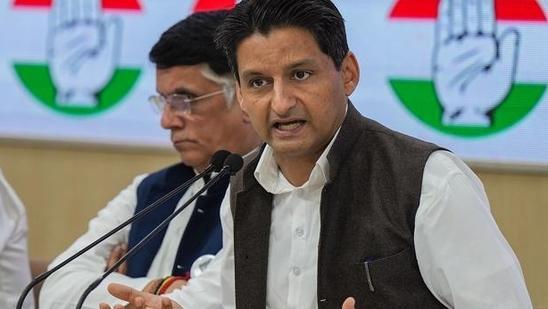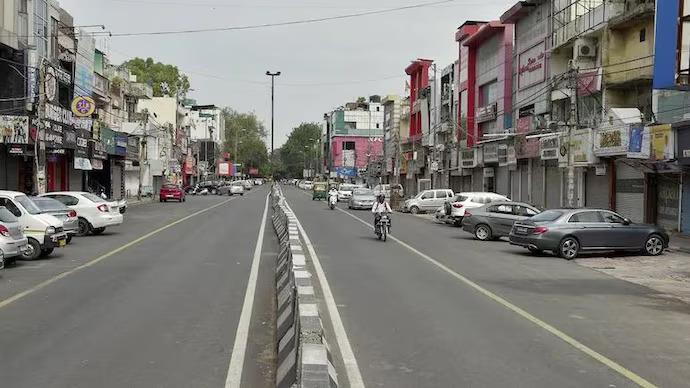
Enemies of Peace Won’t Be Happy to See Peace in J&K: Altaf Bukhari
The recent terrorist attack in Pahalgam, Jammu and Kashmir, has left the nation in shock and grief. At least 26 people lost their lives in the brutal attack, which is a stark reminder of the ongoing struggle for peace in the region. In the aftermath of the attack, Altaf Bukhari, the President of Apni Party and a prominent political leader in Jammu and Kashmir, condemned the incident and sent a strong message to those who perpetrate such violence.
Bukhari’s stark words were a reflection of the widespread outrage and sadness that has gripped the region. “Those who are enemies of peace will never be happy to see peace,” he stated unequivocally. “This is a murder of humanity.” His words were a potent rebuke to the terrorists who had carried out the attack, and a reminder that such acts of violence will never be tolerated or justified.
The attack in Pahalgam was a stark reminder of the ongoing struggle for peace in Jammu and Kashmir. Despite efforts by the government and other stakeholders to promote dialogue and reconciliation, the region continues to be plagued by violence and unrest. The attack was a cruel reminder that there are still those who seek to disrupt the fragile peace that has been established in the region.
Bukhari’s comments were also a call to action, urging those in positions of authority to learn from such attacks and take concrete steps to prevent similar incidents in the future. “Lessons need to be learned from such attacks,” he emphasized. “We must work together to ensure that such incidents do not recur.” His words were a powerful reminder that the struggle for peace in Jammu and Kashmir is not just the responsibility of the government or the security forces, but also of each and every individual who calls the region home.
The attack in Pahalgam was also a stark reminder of the human cost of violence. At least 26 people lost their lives in the attack, and many more were injured. The victims were ordinary citizens, who were going about their daily lives when they were caught up in the crossfire. The attack was a brutal reminder that terrorism is a senseless and inhumane act, which can have devastating consequences for innocent civilians.
In the aftermath of the attack, there has been widespread condemnation from across the region. Political leaders, religious leaders, and ordinary citizens have all spoken out against the violence, and have called for greater efforts to promote peace and reconciliation. The attack has also sparked a renewed sense of urgency among the people of Jammu and Kashmir, who are demanding greater action from the government and other stakeholders to address the root causes of the conflict.
The attack in Pahalgam is also a reminder that the struggle for peace in Jammu and Kashmir is not just a local issue, but a national and international one. The region has been a flashpoint for tensions between India and Pakistan, which have been at loggerheads for decades. The attack has also sparked concerns about the safety and security of tourists and pilgrims who visit the region, and has highlighted the need for greater cooperation between governments and other stakeholders to promote peace and stability.
In conclusion, the attack in Pahalgam is a stark reminder of the ongoing struggle for peace in Jammu and Kashmir. It is a brutal and senseless act of violence that has left the region in shock and grief. As the people of Jammu and Kashmir work towards a more peaceful and prosperous future, it is essential that we learn from such attacks and take concrete steps to prevent similar incidents in the future. Altaf Bukhari’s words were a powerful reminder of the importance of promoting peace and reconciliation, and the need for greater cooperation and understanding between governments, political leaders, and ordinary citizens.






